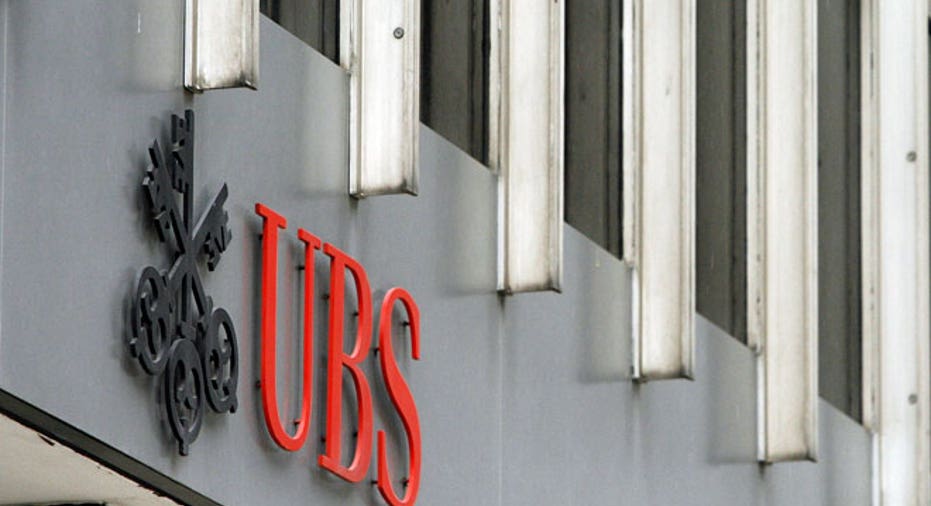Recovering UBS to Buy Back Toxic Asset Fund

UBS will buy back a fund set up to purge the Swiss bank of toxic assets, drawing a line under a humiliating state bailout in 2008 and raising the prospect of an early increase in dividends.
Switzerland's largest bank by assets has overhauled itself following the financial crisis and a series of high-profile scandals, abandoning risky fixed-income activities, hiving off loans and raising capital, to restore its reputation.
The fund buyback will boost the bank's capital defences, distinguishing it from rivals such as Britain's Barclays , which on Tuesday said it would tap shareholders for 5.8 billion pounds to boost its capital.
Deutsche Bank, meanwhile, pledged to cut risky assets to help shield itself from future losses.
"The results show that our strategy is right and we're ahead on execution," UBS Chief Executive Sergio Ermotti said in a statement.
UBS's shares rose 2.8 percent to 18.24 francs on Tuesday, the biggest gainer on a lower European banking index.
The stock hit a two-year high last week after the bank disclosed a quarterly profit that beat forecasts, even after paying $885 million to settle a lawsuit with the U.S. housing regulator over the mis-selling of mortgage-backed bonds.
After a disastrous foray into U.S. mortgage securities brought UBS to the brink of collapse in 2008, roughly $38.7 billion of toxic assets were offloaded to a fund managed by the Swiss central bank as part of a state bailout.
The assets, which the Swiss National Bank has been selling, have since staged a turnaround and added 316 million Swiss francs to the central bank's first-half results.
UBS will repay a central bank loan, now worth about 1.2 billion francs, and buy the bailout fund back in the fourth quarter, a year earlier than many analysts had expected.
A buyback would currently cost 2.5 billion francs but that will change as the fund's assets rise or fall in value ahead of the purchase date, UBS said.
The move will boost UBS's capital ratios by taking on the cash and securities remaining after the loan is repaid.
UBS didn't comment on the effect the repurchase will have on its dividend policy beyond saying it will return to substantial payouts once it hits a common equity tier one ratio, under Basel III rules, of 13 percent, expected next year. That ratio is currently 11.2 percent.
Analysts forecast a large jump in dividends next year.
"The important points for the UBS investment case are that the capital ratio continues to strengthen and therefore a return to high dividend pay-outs could even come earlier than in our estimates," Helvea analyst Tim Dawson said.
UBS paid out 0.15 francs per share last year and has pledged to pay out more than 50 percent of profits to investors from 2015.
CAUTIOUS ON Q3
The bank's second-quarter performance was driven by buoyant equity markets but in its outlook on Tuesday, UBS said third-quarter revenue and net new money - a closely watched bellwether of future business - may be hit as clients fret about the euro zone, U.S. debt trouble, and a mixed global economic outlook.
Despite the cautious tone, the bank said it was confident its flagship private bank, the largest in the world, would continue to attract new money.
UBS is relying more on its private banking business after the financial crisis forced it to abandon ambitions of being a big-league investment bank.
Home-town rival Credit Suisse is sticking with its large investment banking operation but its reliance on fixed- income trading hits its shares last week amid fears higher interest rates could hurt that business.
As part of its restructuring, UBS has so far cut spending by 1.8 billion francs. It is aiming to axe 5.4 billion francs by 2015. It shrank its balance sheet by 20 billion francs in the quarter.
"The wealth management division is still attracting strong inflows and the group has already put U.S. tax-related affairs behind it," said Dawson, who rates UBS at accumulate with a 19.3 franc price target.
Credit Suisse and Julius Baer are among a dozen Swiss banks under investigation by U.S. prosecutors for helping wealthy Americans evade tax, an investigation spawned by a U.S. crackdown on UBS, which the bank settled in 2009.



















